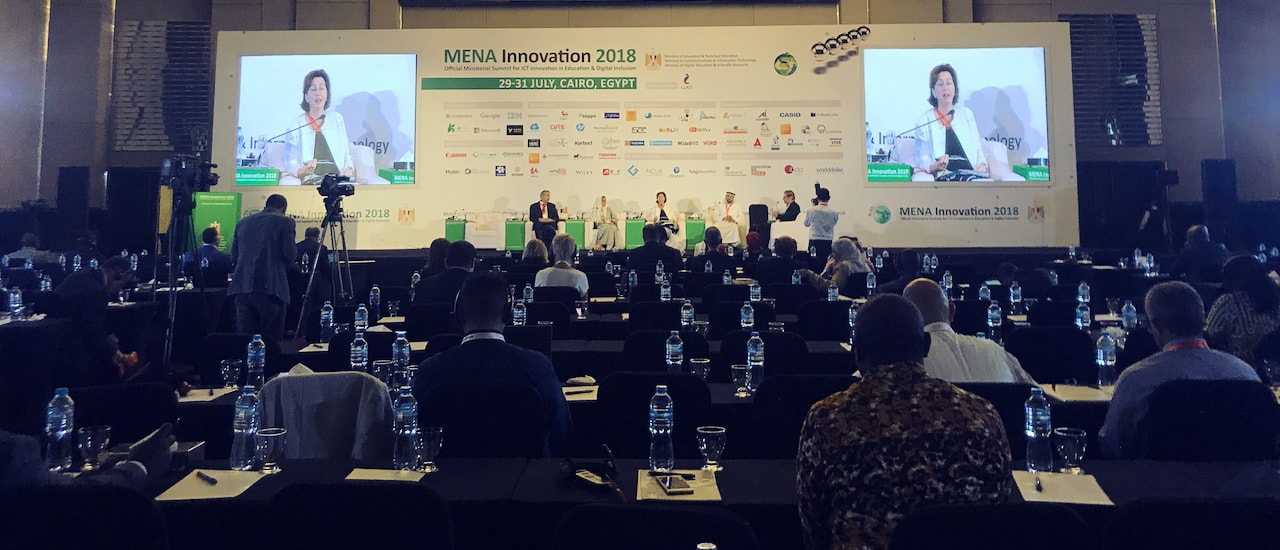Internet access and the development of digital skills can transform lives of over 350 million people in the Middle East. With more than 60% of the population under 25 years old, the region is one of the most youthful in the world. However, at the same time, young people are the ones facing several challenges regarding education and employment.
In this context, it is imperative for the region to take actions, and the Internet is an opportunity to do it now.
This week, I had the opportunity to speak at a panel entitled “Digital Skills for the Labour Force and Entrepreneurs,” at MENA Innovation 2018. The session was moderated by Selim Eddé, from Google, and had the participation of high-level representatives from Egypt, Saudi Arabia, and UAE.
While it was clear that there are many ways to overcome the challenges of the region, all panelists agreed on one key aspect: the importance of education and entrepreneurship for building the future that the region needs.
For the Internet Society, three key factors need to be taken into account:
- Internet access: the lack of access in the region is still a barrier that we need to overcome. However,access to the Internet not only means connectivity, but also it means better prices and better quality. Only an Internet that is accessible and affordable to everyone will provide the tools that our society need to develop digital skills and make the most of the digital economy.
- Digital skills: ensuring the development of skilled, trained, and engaged people who can create, sustain, and maintain infrastructure is what we do at the Internet Society. For our region to be prepared for the future, we need to equip our people with the technical skills to support the development of technology and infrastructure. The Internet Engineering Task Force (IETF) is one platform that everybody can engage in to create open standards for the Internet. There are very few engineers from the region who contribute to the development of the Internet.
Another challenge that we see in the region is the integration of women in STEM at an early stage. Women are not encouraged to pursue a STEM career, and if they do it only 25% of graduates participate in the workforce. For many participants and representatives, the digital gender gap is one that we need to break.
- Local content: A lack of Arabic and local language content makes it harder for those with limited language skills and less education to get the most from the Internet. It is essential that people find and create relevant content and usable services in their own languages and, to do so.
Changing the Mindset
To move things forward in the region, we need to change the mindset of the community first. When our parents want us to become successful government employees, we will never become entrepreneurs and take risks and chances to succeed.
All four components together can build an enabling environment that encourages young people to adopt and productively use the Internet and in a way that will benefit them and the region as a whole.
Creating this environment, it is not an easy task. During the three days of the Summit, we learned about many different governmental initiatives that are already making a difference at the national levels. But if we want our region to thrive, we need to work together: governments, companies, and civil society organizations. Considering the number of young people in the region it is also crucial to include youth in the conversation.
As it was said during a session: “If you want to go fast, walk alone. If you want to walk far, work together”. Only by working collaboratively, the region can become drivers of innovation and shape its future to the needs of the youth of the region.
MENA Innovation 2018 took place in Cairo, 29–31 July, and was organized by Brains Innovation Summits with the support of the Egyptian government. The three-day event counted with the participation of Ministers of Education and ICT from different countries of the Middle East and Africa. The theme of the meeting was ICT innovation in education for achieving the Sustainable Development Goals (SDGSs). The Internet Society was part of the official delegation of the Summit.
Help close the digital gender divide. Join the SIG Women!
